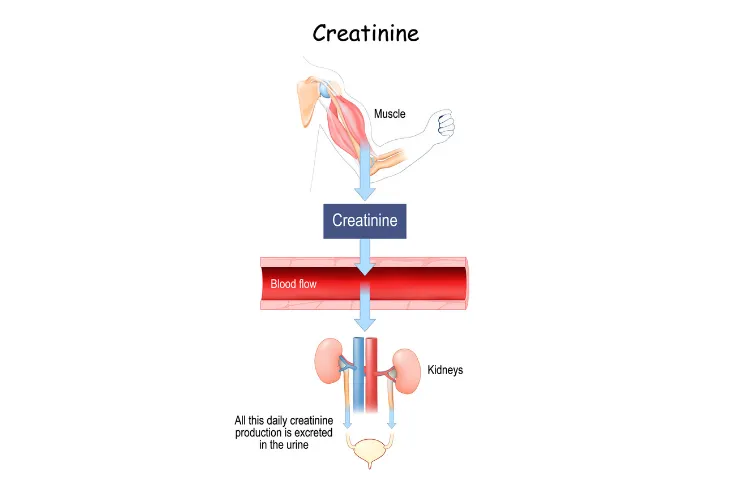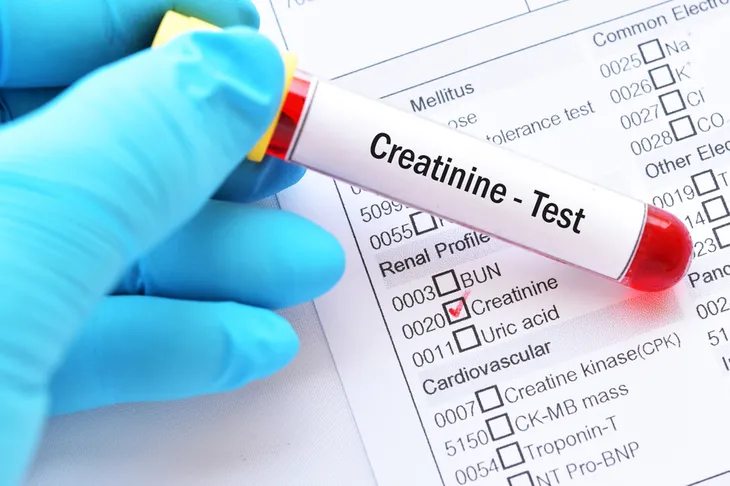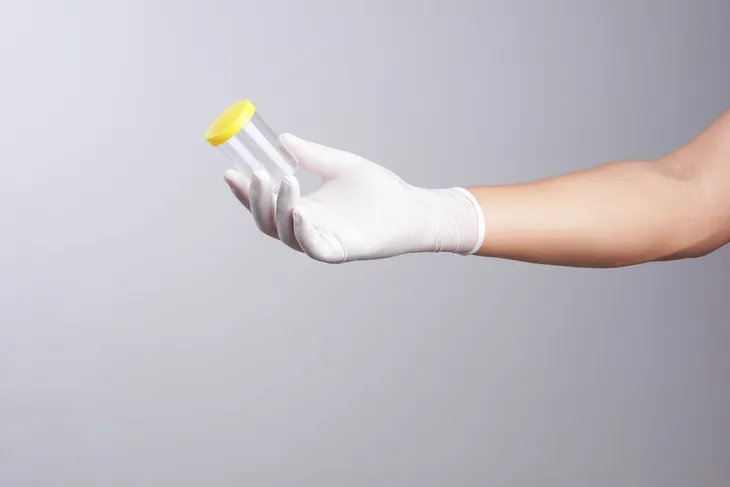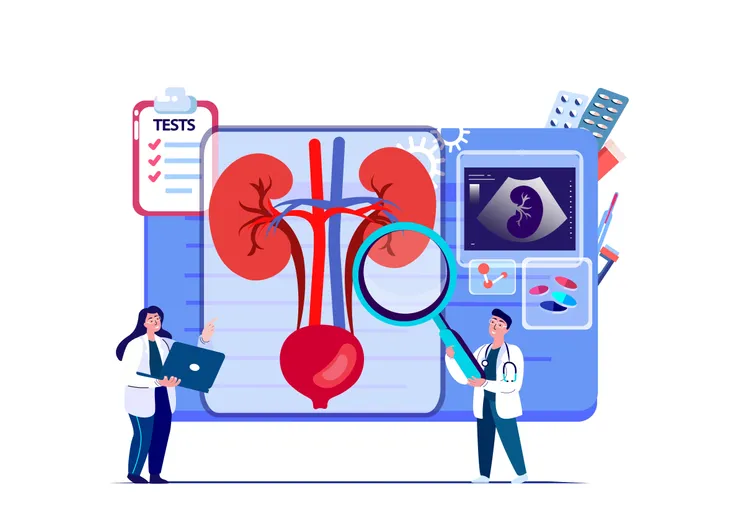The field of medical science may not know everything, and sometimes those biological blind spots often cause us a whole lot of problems. Having said that, the conversations surrounding the science of creatinine levels are resoundingly positive.
Testing a patient for their creatinine levels is standard practice precisely because that science is so rock solid. So, what is creatinine, why are tracking its levels important, and what can those levels tell you about your overall health? We think it’s time we take a closer look.
What Is Creatinine?
Before you start panicking at the sight of the word creatinine, it’s important to establish its normalcy. Creatinine is apparent in a variety of levels in everybody’s bloodstream. It’s a waste product that forms as a natural part of the wear and tear on your body.
The levels of creatinine in one’s blood can be affected by age, mass, race, and sex. Those levels can also tell your doctor a lot about how well your kidneys are working.
Creatinine and Your Kidneys
Healthy kidneys have no problem filtering the creatinine out of your body. But, if your doctor recommends a urine or blood test and discovers high creatinine levels, it may signify a much more serious condition.
Healthline says, “Measuring creatinine levels can provide important insights into how your kidneys may be functioning.” High or low levels of creatinine may indicate your kidneys aren’t working properly or it may be a sign of another condition.
What Are High Creatinine Levels?
So what’s considered high levels of creatinine anyway? Mayo Clinic says the normal range of creatinine in the blood for an adult is usually 0.84 to 1.21-milligrams per deciliter (mg/dL). Anything above the normal range is considered high.
Your doctor may request another blood test to confirm that your levels are high. They may also request a urine sample. Let’s take a look at what that entails next.
Testing Creatinine Levels with a Urine Sample
Along with a blood test, your doctor may require a urine sample to determine if you have high levels of creatinine. They will likely request a 24-hour sample which requires collecting samples of your urine over a period of 24-hours.
Normal levels of creatinine in a 24-hour urine sample are 601 to 1,689-milligrams per day for women and 955 to 2,936-milligrams per day for men. Levels above this are considered high.
Causes of High Creatinine Levels
It’s difficult to source the precise cause of increased levels of creatinine in the blood straight away. That’s not to say that the cause is destined to remain unknown. Elevated creatinine levels usually signify impaired kidney function.
The next step in the process would be to determine what exactly is causing the kidney dysfunction and whether this change happened recently or has been occurring for some time.
What Causes Kidney Dysfunction?
There are several conditions that can lead to kidney dysfunction. High blood pressure and diabetes are two such chronic examples. Elevated blood creatinine levels can also be caused by certain drugs, nutrition, and kidney infections.
The most important distinction to be made here is that high blood creatinine levels aren’t inherently bad, but they may alert your medical provider of a more serious medical condition.
Symptoms
There are no consistent symptoms associated with high blood creatinine levels. A routine blood test may reveal high levels of creatinine without a single symptom.
But, considering that high creatinine is associated with kidney dysfunction, we feel compelled to elaborate on what that may look and feel like.
Symptoms of Kidney Dysfunction
The symptoms of kidney dysfunction can vary widely depending on the underlying cause of the condition. Common symptoms include feeling dehydrated, fatigue, swelling, shortness of breath, and confusion.
There may be other, nonspecific symptoms too, including nausea, dry skin, neuropathy, and vomiting.
When to See a Doctor
There are two reasons to see a doctor and get yourself tested. To start, everyone should make visiting the doctor a routine. If you’re under the age of 50, try to book a routine check-up once every 3-years. While those over the age of 50 should book themselves in at least once per year.
Otherwise, you should make a point to visit your doctor any time you’re experiencing new, unexplained, or recurring symptoms. Especially if those symptoms are consistent with heart disease, diabetes, or kidney disease.
Once there, your doctor may take a blood sample, or request a 24-hour urine test to determine your creatinine levels and overall kidney function.
Treatment
Doctors don’t set out to treat high creatinine levels. Instead, they determine the underlying cause and treat that.
If the elevated levels of creatinine in your blood are caused by a kidney infection, you may be able to treat it with prescription antibiotics. In the case of high blood pressure, your doctor may recommend blood pressure medications to help treat those symptoms.
Lifestyle Changes
At your doctor’s suggestion, you may be able to lower your creatinine levels by making other lifestyle changes to your nutrition and exercise levels to help alleviate symptoms too. For starters, they may recommend you lower your protein intake and opt for plant-based proteins instead of red meat.
Further, those suffering from chronic kidney disease may need to increase their fiber intake to help lower creatinine levels. Finally, it’s important to drink plenty of water because dehydration may lead to temporary spikes in creatinine levels.
The Takeaway
Creatinine in your blood is a perfectly normal part of the biological process. If those levels are elevated though, it may be a sign of something much more serious. Thankfully, many of the underlying causes of elevated creatinine levels can be treated as well.
You aren’t going to wake up one day feeling like the level of creatinine in your bloodstream is too high either. You may not feel anything at all. All the more reason to make a habit out of visiting your local medical professional, taking the appropriate tests, and following all of their expertise.















